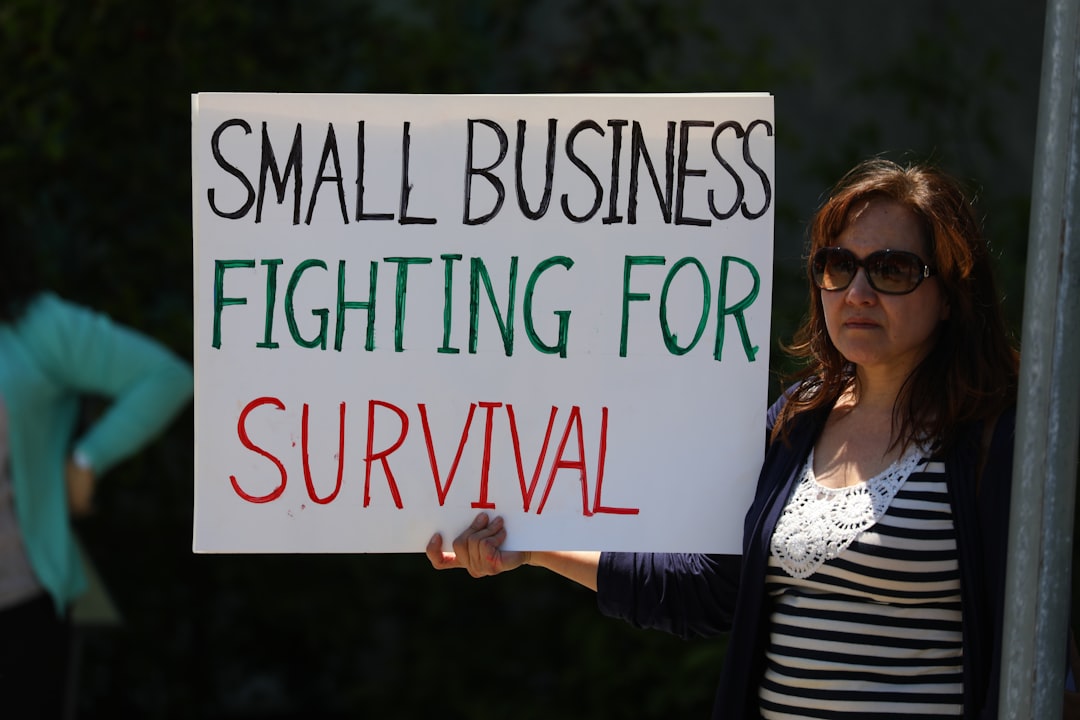Right - here we go - another clickbait article... Not quite, read on, because your local small business is essential for both the economy of your community and therefore country, it is essential for remaining free to make your own choices. I urge you to read on...
The role of small business in the community
It is not the large corporations that employ people - it is the small business, many small businesses. While some may snub their noses at the "mom and pop shop", but they fail to realise that without these, there is nothing for the corporation to grow towards. It is their supply chain, and demand chain, all made up of these small businesses.
The second largest employer is still not the "blue chip" corporation - it is the government. Local, state (or provincial), and national government. The problem with a large employment through government is that government does not create anything. Governments do not raise revenue through the value they create, they raise "revenue" (read: tax), based on the value that business create. And small businesses not only create the most value, they also pay the most tax. Where the corporations have complicated but legal and most importantly, effective strategies to minimise tax, the small business does not have the resources to create such constructs.
The small business may be small, but as a sector in the economy on a whole, there is nothing that comes even close!

Small business fighting for survival - yours as well as theirs
Imagine a world without small business. Everything you buy will be through a large corporate or another. Initially, the experience is one of convenience. It is cheap, and convenient, and consistent. However, as soon as there is enough consolidation, the prices will start to rise, and the choices will start to decline. Why would you keep a wide assortment at a reasonable price when there is little or no choice? And why would you keep innovating? Small business, that's why. The moment the "deal" with the efficient corporate supplier can be improved, the small business tends to do that. Either by offering a better service, or by offering a competitive price, higher quality, or a truly innovative new product.
Small business it the only thing that stands between you and the choice of what you buy and where you buy it.
Revenue raising for government
We all need to pay our taxes, so the government can provide the security and infrastructure we instruct them to deliver (assuming the reader is in a liberal or republican democracy). Small business is a significant contributor to government income. Not only to they pay business income tax, but also goods and services tax (GST, or VAT, Sales Tax), payroll tax (the most counter-productive tax anyone could ever think of), and by employing people, they indirectly fund personal income tax for their employees. While corporations individually may employ more people than a small business, they tend to outsource more as well (and not all in the same country, let alone the same community), and as mentioned before, they tend to have a more effective tax construct, minimising the tax they pay in any individual country. But that is OK, because we need the prestige of the large corporate in our midst... right?

Freedom versus control
A small business is notoriously difficult to control - where the corporation will easily bend to the nudges of social media, activist investors, and other special interest groups; the small business has only one special interest group, and that is their customer in their community. There is none of those theatrics of global brand sneaker manufacturers telling you what is wrong when saluting the flag, or standing for the national anthem, while at the same time their supply chain is riddled with manufacturing using forced labour (read: slave labour) in Xinjiang.
A small business can do all these things (well, probably not the forced labour stuff... the scale would not be condusive) - but there are immediate other small business around the corner that do not tell you what to think, how to think, and what to do. Plus, they will use the local resources in the community.
It comes down to a very simple choice - you don't like the small business' political action? Go to the competitor. Since it is small business, the barrier is not that high to compete. What you'll find is that most small business owners become active where it matters - improving the lives of their clients with the goods and services they offer. More small businesses in your area, means more choice for you.
It also means more options for your government. Instead of negotiating with few big businesses, they get a steady stream of revenue from business and payroll taxes from a wide pool of participants. And those participants have a direct voice via the electoral system on the direction and performance of the government.
Only small business? Or is there still place for the big corporations?
Of course there is a need for corporations to bring scale to operations. No small local business would be able to start a competitive international airline, or build the planes, or competitively priced and featured cars. Nor can a small business set up a rail infrastructure, or set up a competitive resource extraction business. Nor is it easy to compete with the tech-giants when it comes to deploying data-centers. We need the corporations as much as they need us.
However, when it comes to corporations and government it is important to maintain the power of the "special interest" of the corporations subservient to the "general interest" of the community. As corporations do not have a vote, they will need to put other means to work in order to get the political outcome they want - and they will have to use these means if their interests are not the same as the voting public's interests. This should be limited.

If you value your community, here are some actions to take
Let your elected representatives know that you value the following:
- Lower regulation to increase competition (when large corporations ask for regulation, this is not done for your benefit. It increases the barrier for newcomers to compete with them!)
- Make it easier to start a business, and remove risks on hiring personnel
- Value the local small business over the large multinational corporations (especially the ones that are not of your home country)
- Reward businesses that employ locally versus outsource (remove payroll tax, and place incentives on local employment)
- Local government to buy local where possible
- Foster small business capability to compete globally with other small businesses (it sounds paradoxical - but it is fundamental to "transnational localism" - local businesses cooperating and competing, using the technology of the 21st century to create a global marketplace of local innovative businesses)
